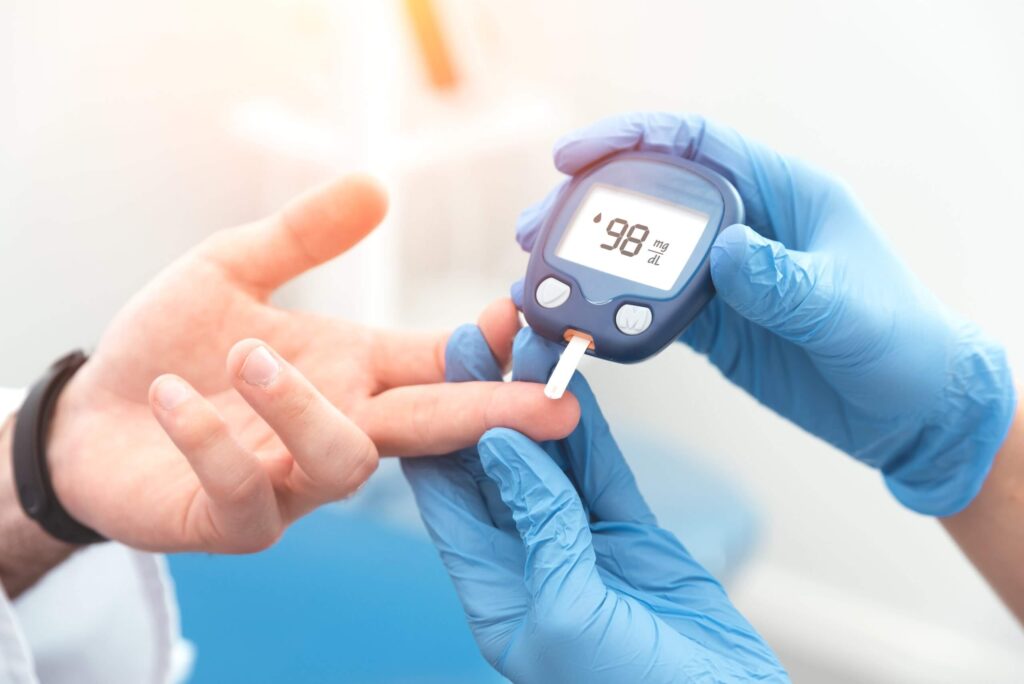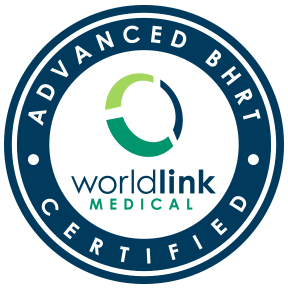Diabetes is a serious health disorder. I am hesitant to call it a disease, because depending on the cause and type of diabetes, it can be reversed in many situations (or managed), and some types can be prevented.
The conditions that occur if diabetes is not well-managed, are what are really considered diseases. You never hear people dying of diabetes, but instead they are dying from heart disease, kidney disease and other diseases or conditions, as a result of uncontrolled diabetes. Before dying of these diseases, however, they are suffering from these complications of diabetes, that are severely impairing their quality of life and their pocketbooks.

Overall, all types of diabetes (see “types” below) are the result of too much blood glucose (sugar) in the bloodstream, due to either no insulin or not enough insulin available to move the glucose into the body’s cells. The macronutrients (protein, fat and carbohydrates) in the food we eat are broken down into smaller particles, and carbohydrates especially, are broken down to glucose. Glucose is the type of sugar that cells require to make energy. In other words, glucose is the body’s “fuel.” Just like an automobile requires gasoline to run, the fuel humans run on is “glucose.”
The pancreas, a gland near the stomach, contains cells called “beta” cells, that make the hormone “insulin.” Under ideal and normal circumstances, insulin acts as a carrier and moves the glucose out of the bloodstream into the cells, where the energy is used. In diabetes, the body is either unable to make insulin (the carrier) or the insulin available is unable to keep up with the presentation of glucose coming in from the diet, or from stressful events, inflammatory reactions, or other causes, thereby leading to excess blood glucose accumulating in the bloodstream.

This then causes the blood to become thick, like maple syrup, and that causes every cell in the body to become sticky and unable to function normally. Your automobile wouldn’t function normally either if the fuel was full of “gunk.” This “gunk” also makes oxygen and other nutrients more difficult to maneuver through the blood so that it can be delivered to every living cell. Without oxygen and nutrients, cells eventually die.
Thus, as you can now see, it is the excess blood glucose that accumulates in the bloodstream that will lead to the potentially devastating complications, or chronic diseases resulting from diabetes. Therefore, it is the goal for all types of diabetes to prevent, reduce, manage or reverse the uncontrolled blood glucose disorder (no matter the cause). Excess blood glucose damages blood vessels and nerves that lead to blindness, amputations, kidney failure, stroke, heart attack, digestive and nerve problems (including erectile dysfunction and sexual dysfunction in women), sleep apnea, gum disease, depression, and so much more. Refer to the “complications” resource here.
Meanwhile all of this is going on in the blood stream and damaging the vessels and nerves, inside the cell is STARVING, since fuel (energy in the form of glucose), is unable to get into the cell without insulin. Therefore, with very elevated blood glucose levels, the person will feel very tired and fatigued. Other symptoms will include excessive thirst and urination (the body has to get rid of the excess sugar via the urine and this dehydrates the cells and makes you thirsty), dry skin, dry mouth and blurred vision (due to excessive urination), weight loss and hunger despite eating (due to the fuel not getting into the cells) and constant feeling of hunger. Depending on the type of diabetes (see below), these symptoms could be very rapid-onset, or a slow-onset and hardly noticeable initially.

The good news is that the metabolic dysfunction of diabetes can be REVERSED. The definition of reversal is “a change to an opposite direction, position or course of action.” Don’t let any healthcare practitioner allow you to “settle” with high blood glucose numbers, and tell you that it is because you have a chronic disease with little recourse. All diabetes dysfunction is reversible—even type 1 diabetes, as you will learn about if you click the links below. And the truth is, even though it is listed below as a “type” of diabetes, there is no such thing as “pre-diabetes.” Telling someone they have “pre-diabetes” is like saying someone is a “little bit” pregnant. Conventional medicine will have you believe that you don’t have diabetes with a fasting blood glucose less than 126 mg/dL but over 100, and then send you on your way without advising you on how to get to an ideal blood glucose goal and avoid the “conventional” imminent diagnosis of diabetes. An ideal fasting blood glucose is actually 70-90 mg/dL, not 100 (as conventional medicine will have you believe), so if your fasting blood glucose is consistently over 100, you are pregnant (only kidding)—you have diabetes.
Another truth that may be hard to swallow, is that “we are ALL “pre-diabetic,” living in this excessive diabesi-genic and toxic society. It is NOT your fault. Everyone should frequently be checking their blood glucose levels. If you don’t test, you may never know if you have elevated blood glucose values, or at least not know in a timely manner to do something about it before real damage is done. Even if you have had your fasting blood glucose level tested and it came back by conventional medicine’s standards of “within normal limits,” this is only one blood glucose value in time, and only measures the blood after going without food for 8 or more hours. It’s also important to measure a blood glucose two hours after a meal. This will give you an idea of how your body is handling the foods you are eating. After all, half of the day we are not fasting, but instead are eating or grazing, and are exposed to excess sugar from our diets. In addition, we are exposed to so many other toxins and stressors on a daily basis that can lead to inflammation in our body that will than lead to elevated blood glucose.

Have you checked your blood glucose lately? If not, you should, even if you have not been diagnosed with diabetes. The glucometer is one of the most inexpensive and best tools that we have to assess not just high blood glucose levels, but to determine if you have chronic “inflammation” brewing in your body, that is reflective in the high blood glucose levels. With any of the types of diabetes listed below, chronic “inflammation” is ultimately occurring in your body, causing havoc. If you have abnormally high blood glucose levels, further investigation is indicated to determine the cause, and treatment needed for REVERSAL. Don’t delay!
Prediabetes
Type 1 diabetes
Type 1.5 diabetes (LADA)
MODY
Type 2 diabetes
Type 3 diabetes
Gestational diabetes
Above empty links coming soon
Other types of diabetes: Steroid-induced, Cystic Fibrosis-related, Diabetes of the Elderly, Diabetes in the HIV patient
Medical-types of diabetes: thalassemia, status/post whipple procedure, etc.




Treat the whole person, not just the symptoms. Look for the root cause, together. Give you what you need, and take away what you don’t to allow your body to heal itself: “Get Healed Naturally.” Let’s get you tuned up, feeling younger, healthier, happier, more alive and vital, and harmoniously dancing your way through life again.
© 2025 Vital Health Solutions, Vital Health Drips & Vital TRT are DBAs of HealthSteps Rx, Inc. All Rights Reserved.